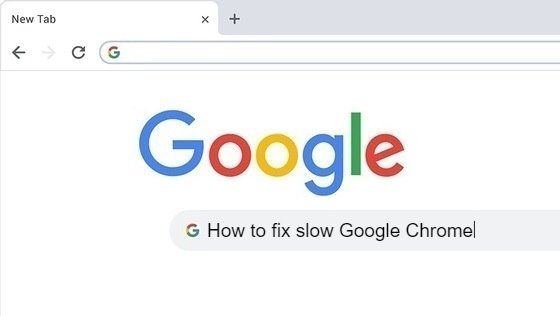How To Speed Up Google Chrome
Google Chrome is the most popular desktop internet browser in the world with a global market share of more than 70% in December 2018 according to Statista.
Unlike other browsers, Chrome is a minimalist one, but its resizing performance and web page loading speed are usually superior. But, like any expandable browser that allows users to enable plugins or to install extensions, Chrome can generate load speed issues due to high system resource usage (CPU and memory).
If you’re experiencing low Chrome performance, you should apply these suggestions to speed up your browser.
Clear browsing data
As you probably know, Chrome stores a cached copy of any web page you visit, so it can load the page faster next time you visit it. It also keeps a database of your browsing history and cookies for the same purpose. As you visit more and more websites, your browser’s database will grow slowing Chrome down.
Fortunately, there is an easy and viable solution: clear your cache. To do this, you just need to access your browsing history by entering chrome://history on your address bar. From the left panel click Clear browsing data. Then, choose what to clear by clicking the checkboxes next to the items you want to delete, like cached images, browsing history, cookies etc. Once you’ve selected the files you want to delete and the time range, click Clear data. Restarting Chrome is recommended.
Track internet performance
Sometimes your browser appears to load a web page slowly, but when the problem is the website itself, there is nothing you can do rather than wait or abort.
This is where Gauge (Chrome extension) comes in. This free extension, developed by Dyn, measures the performance of the internet, recording page loading times, geographic latency, and other relevant variables. Gauge is very useful to find out if your browser is slow due to your Wi-Fi connection, internet service provider or web page you visit.
Remove ads and malware
Chrome can also be affected by malware or adware which is a type of malware that hides on your computer and monitors your behavior online for serving you promotional content. So, if you are displayed recurring pop-up ads, toolbars, alerts about a virus or web pages redirecting to other URLs, be aware because those are clear indications of a form of malware.
Google made malware scanning even easier in 2018. You just need to go to chrome://settings/cleanup on your browser and click on Find and remove harmful software on your computer. It’s a pretty efficient scan that you should run from time to time.
Disable extensions
Extensions are programs that can be downloaded from the Chrome Web Store that you can install to your browser to add more features and functionalities. For instance, you can add an extension that shortens URLs, blocks ads or one that shows you what are your most important tasks every day. While some extensions are useful, they can slow Chrome down especially when there are too many installed and activated.
You can check your browser’s extensions by entering chrome://extensions on your address bar. There you’ll find the list with all the extensions you have (even the ones that are turned off). You just need to scroll through the list and click Remove to delete the extension/s you don’t need anymore.
Speed up page loading
One of the most efficient extensions for speeding up the browser is Google’s own Data Saver extension.
Nowadays, more and more websites move to HTTPS and pages accessed through HTTPS or in incognito tabs will not be optimized or seen by Google. Therefore, Data Saver extension has become less useful, but for regular HTTP connections this means faster browsing and smaller downloads making it ideal in case you are using a slow Wi-Fi connection or if you are charged for downloads.
Eventually, a top-performing web browser can increase employees’ productivity therefore is critical to keep it secure and optimized.



